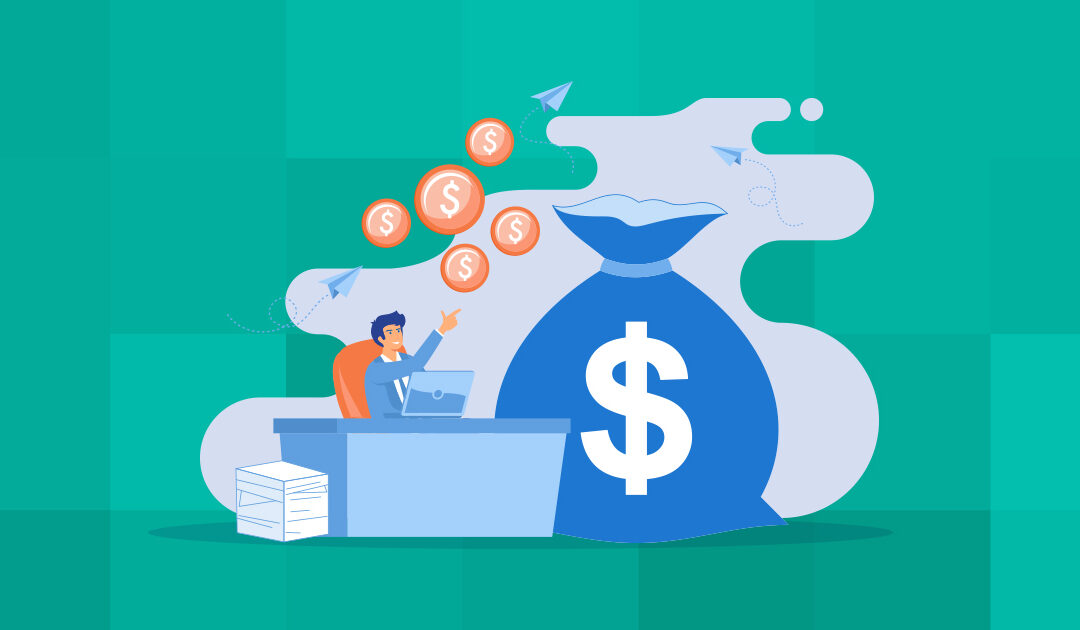Starting a business in any economy can be overwhelming. Market fluctuations and economic recessions can impact income streams in a variety of ways. A recession-proof passive income stream of revenue is one of the best ways to start a new business or increase your salary. Passive income allows you to continue working in your current career while bringing in extra money. Check out some of the top passive income recession-proof streams.
Key Takeaways
Passive income is a great way to add to your yearly salary without having to work more hours each week. Here are a few key takeaways about recession-proof passive income:
- Self-storage services might be in demand during a recession.
- Real estate is a rewarding active and passive income source.
- Investing in small businesses can help them through a recession.
- Online courses and e-books are great options if you have special knowledge.
- Maxing out your employer-match retirement contribution is free money.
- You can set up automatic stock investments for routine returns.
- Dividend stocks pay you profits on a regular schedule.
- High-yield savings accounts pay you simply for keeping your money.
Infinity Investing Featured Event
In this FREE event you’ll discover how the top 1% use little-known “compounders” to grow & protect their reserves. Our Infinity team of experts show you how to be the best possible steward of your finances and how to make your money and investments work for you instead of you working for them. Regardless of your financial situation today, you’ll have a road map to get to where you want to be.
1. Self-Storage Business
Self-storage facilities give people a place to store their belongings when they’re moving or renovating. The great thing about owning a self-storage business is it requires minimal effort on your part. You’ll need a salesperson who rents out the spaces, but other than that, the business mostly runs itself. Self-storage businesses are also recession-proof, as people always need a place to store their belongings when downsizing or moving.
2. Real Estate Investment
Investing in real estate can be as hands-on or hands-off as you want. Much of the work involved in real estate rentals occurs upfront. Once you have a property that’s livable, you can rent it out to tenants. Each month, you’ll receive a rent check. You can even hire a property management company to handle rental applications, lease renewals, repairs, and payments. In addition to earning income from rent, you’ll build equity in the property, which you can then use for future investments.
Another way to invest in real estate as a passive income recession-proof strategy is by putting money into real estate investment trusts (REITs). Investing in REITs doesn’t require as much capital upfront. You also assume less risk because you invest in properties with other stakeholders, dividing the costs and profits. Real estate sometimes takes a hit during recessions, but people still need rental properties. You could also expand your real estate portfolio to international markets that might not be experiencing recessions.
3. Peer-to-Peer Lending
Peer-to-peer (P2P) lending allows you to loan money to other entrepreneurs. P2P skips lending from banks and credit unions and collects money from a large group of investors. While P2P lending can be risky, the payout can be much higher than other investment opportunities.
4. Small Business Investment
Small businesses often need extra money to make it through a recession. If you have funds you’re willing to invest, you could earn a nice profit in return. If you have business or marketing skills, you could also help the business manage its costs throughout the recession, which might help them become more profitable. The more profitable the business, the more return you’ll get.
5. Book Publishing
Publishing a book is easier than ever. If you have knowledge about a specific topic you can share with others, this can be a great source of recession-proof passive income. Once you finish the book and publish it, you can sit back and collect any profits you receive from book sales. You can publish a book traditionally and sell it at nearby bookshops, or you can publish virtually with an e-book.

6. Online Courses
You could publish an online class if you have a skill to share with the public. While you might spend a few weeks or months creating the course material and choosing which platform to use, it could easily turn into a passive income stream. If you have also written a book on the topic, you can suggest your students purchase it to learn more about your area of expertise.
7. Matching Contributions
Some employers offer free money as matching retirement contributions. They usually match anything you contribute to your 401(k) up to a certain percentage. If you don’t invest this money, you lose out on the extra income. Taking advantage of the full amount your employer will match can provide you with even more returns.
8. Automatic Investments
Investing in the stock market can provide you with passive returns. You can use a robo-advisor to set up automatic investments or schedule automatic transfers from your bank account to your investment account each month on payday. Investing in index funds also diversifies your investments across industries, which helps manage risk during a recession. Some stocks, including pharmaceutical and technology stocks, fluctuate less with the market during a recession.
Dividend stocks are also great ways to earn passive income. A dividend stock is an investment that pays investors a percentage of profits as a dividend. You can cash out these dividend payments or reinvest them in the market.
9. Stock Photos
You can turn your photography or creativity skills into a passive income recession-proof stream by selling stock photos online. Businesses in all industries need high-quality professional photos to post to their social media and websites and are often willing to pay for them. All you have to do once you have quality photos is sign up for a creator account, publish your photos with creative rights, and wait for businesses to buy them.
10. High-Yield Savings Account
A high-yield savings account pays you a percentage each month for keeping your money in the account. You could also put your savings in a money market or certificate of deposit (CD), but these usually require you to keep your money tied up longer. The longer you keep your money in a CD, the more you can earn.
Are you ready to explore the best passive income recession-proof streams? Sign up for a free membership to access resources you can use to elevate your income.
Bonus Video:
Infinity Investing Featured Event
In this FREE event you’ll discover how the top 1% use little-known “compounders” to grow & protect their reserves. Our Infinity team of experts show you how to be the best possible steward of your finances and how to make your money and investments work for you instead of you working for them. Regardless of your financial situation today, you’ll have a road map to get to where you want to be.

